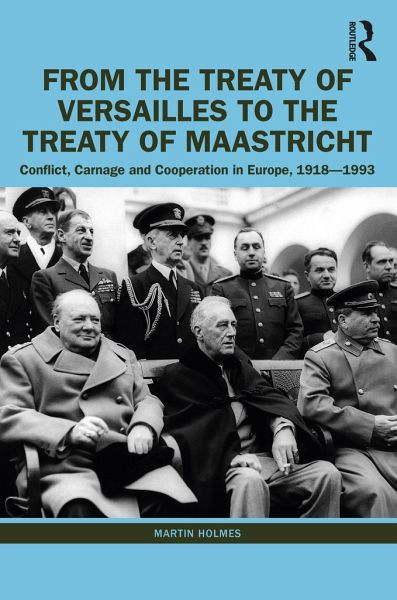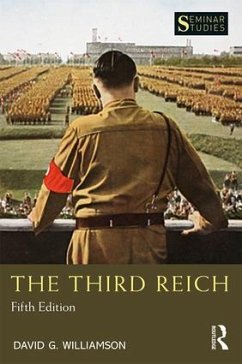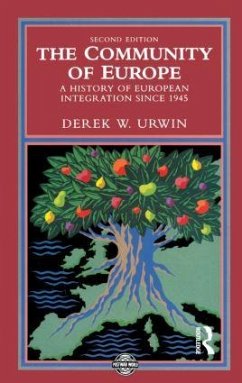
From the Treaty of Versailles to the Treaty of Maastricht
Conflict, Carnage And Cooperation In Europe, 1918 - 1993
Versandkostenfrei!
Versandfertig in 6-10 Tagen
42,99 €
inkl. MwSt.
Weitere Ausgaben:

PAYBACK Punkte
21 °P sammeln!
This book examines European history and politics between two very well-known but flawed treaties: The Treaty of Versailles and the Treaty of Maastricht.Taking the Treaty of Versailles, signed following World War I, as a starting point, the volume argues that while it was well-intentioned to the point of being utopian, it was also totally impractical, rearranging the map of Europe in a way which led to the tragic descent into conflict and barbarism in World War II. The volume then moves through the post war period, the outcome of the war producing the uneasy stability of a Cold War divided cont...
This book examines European history and politics between two very well-known but flawed treaties: The Treaty of Versailles and the Treaty of Maastricht.
Taking the Treaty of Versailles, signed following World War I, as a starting point, the volume argues that while it was well-intentioned to the point of being utopian, it was also totally impractical, rearranging the map of Europe in a way which led to the tragic descent into conflict and barbarism in World War II. The volume then moves through the post war period, the outcome of the war producing the uneasy stability of a Cold War divided continent, and with the establishment of NATO in 1949, the process of European integration ushered in the era of cooperation. Under the influence of Charles de Gaulle, the newly created European Community acted as an association of sovereign states led by France and Germany, spurring economic growth and encouraging other countries to apply to join. After de Gaulle's retirement in 1969, this approach was progressively abandoned in favour of a federal model of integration in which member states transferred their sovereignty to the institutions of what became the European Union. Europe was to be transformed from a continent to a country. The book concludes by analysing the Maastricht treaty, which enshrined this process, as being as fatally flawed as the Versailles Treaty and charts the post-Maastricht slow decline of the European Union giving way to widespread Euroscepticism.
From the Treaty of Versailles to the Treaty of Maastricht will appeal to researchers and students alike interested in European history, politics and World War I and II.
Taking the Treaty of Versailles, signed following World War I, as a starting point, the volume argues that while it was well-intentioned to the point of being utopian, it was also totally impractical, rearranging the map of Europe in a way which led to the tragic descent into conflict and barbarism in World War II. The volume then moves through the post war period, the outcome of the war producing the uneasy stability of a Cold War divided continent, and with the establishment of NATO in 1949, the process of European integration ushered in the era of cooperation. Under the influence of Charles de Gaulle, the newly created European Community acted as an association of sovereign states led by France and Germany, spurring economic growth and encouraging other countries to apply to join. After de Gaulle's retirement in 1969, this approach was progressively abandoned in favour of a federal model of integration in which member states transferred their sovereignty to the institutions of what became the European Union. Europe was to be transformed from a continent to a country. The book concludes by analysing the Maastricht treaty, which enshrined this process, as being as fatally flawed as the Versailles Treaty and charts the post-Maastricht slow decline of the European Union giving way to widespread Euroscepticism.
From the Treaty of Versailles to the Treaty of Maastricht will appeal to researchers and students alike interested in European history, politics and World War I and II.














